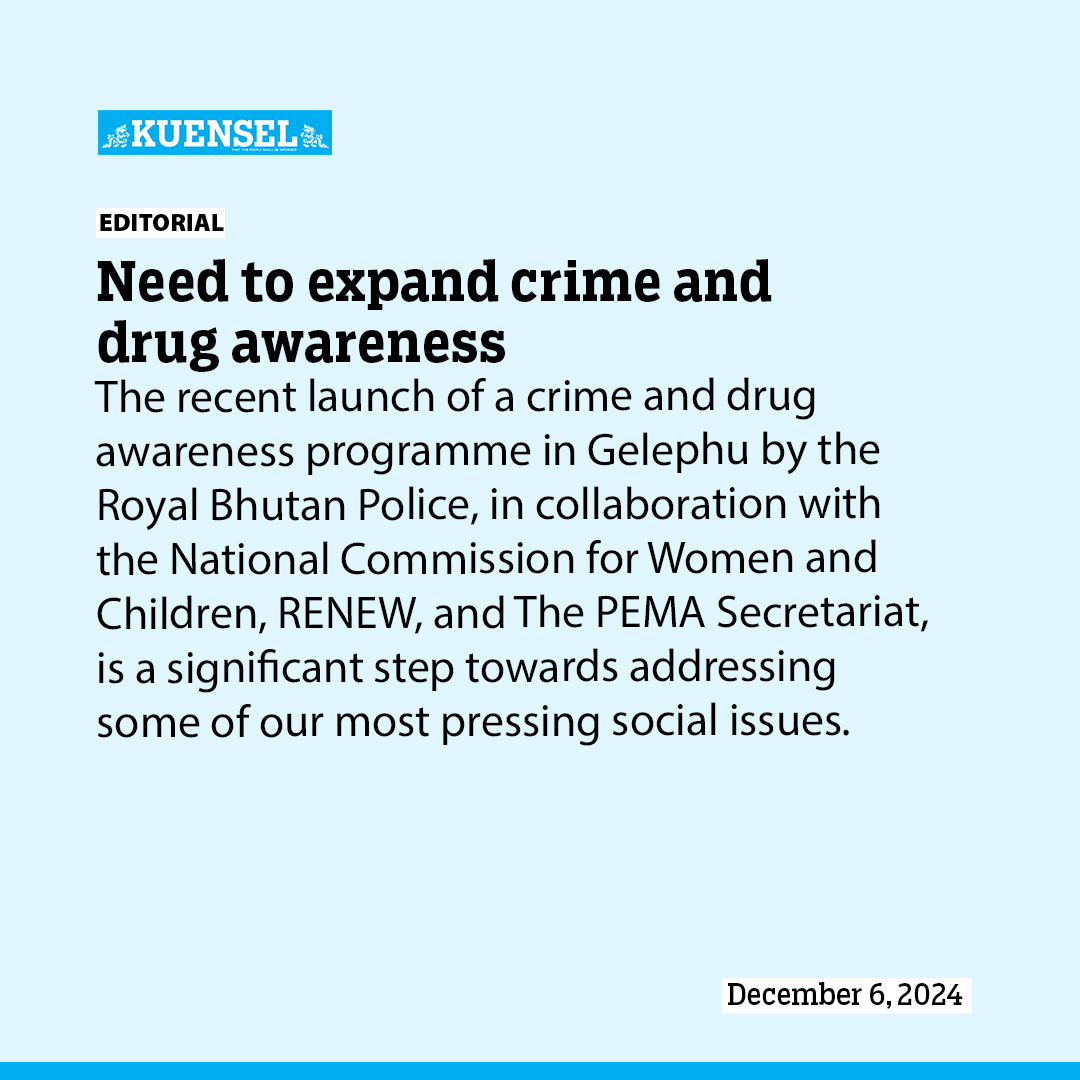The recent launch of a crime and drug awareness programme in Gelephu by the Royal Bhutan Police, in collaboration with the National Commission for Women and Children, RENEW, and The PEMA Secretariat, is a significant step towards addressing some of our most pressing social issues. With an emphasis on community engagement and targeted interventions, the initiative aims to tackle domestic violence, offences against women and children, and drug-related crimes—issues that are emerging as key threats to our societal well-being.
The programme’s foundation, built on comprehensive field reports and police records, aims to ensure that interventions are data-driven and contextually relevant. This approach is commendable, as it highlights a proactive effort to address problems at their root rather than reacting to symptoms. Gelephu, given its location as a gateway town, has faced unique challenges, particularly with the flow of drugs and related crimes. By focusing on such areas, this programme not only seeks to reduce crime but also to rebuild trust and safety within communities.
However, while the initiative is promising, limiting it to Gelephu risks undermining its potential impact. Drug abuse, domestic violence, and crimes against women and children are not confined to one region. Reports have shown that these issues are pervasive across the country. Therefore, replicating similar programmes in all dzongkhags is not merely an option but a necessity. It would ensure a uniform and co-ordinated effort to address these societal problems, leaving no community overlooked.
To make these programmes more effective, collaboration with local governments and civil society organisations must be deepened. Community involvement is key, as local leaders and organisations often possess nuanced understanding of the issues unique to their regions. The inclusion of youth-focused interventions can be transformative.
Another critical aspect is sustainability. Awareness programmes, while impactful, must transition into long-term systems of support. For example, creating safe shelters for victims of domestic violence, strengthening rehabilitation centres for drug users, and training local law enforcement to sensitively handle such cases can institutionalise the progress made by these campaigns.
Addressing societal stigma is equally crucial. Victims of domestic violence and drug abuse often face judgment, which prevents them from seeking help. Public education campaigns that promote empathy and understanding can play a pivotal role in breaking these barriers.
More importantly, the programme in Gelephu must not remain a one-off event. It should serve as a model for a nationwide movement.


